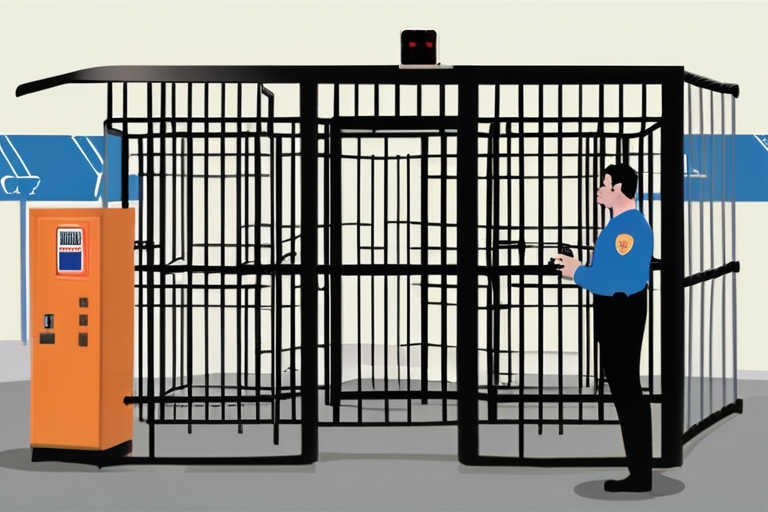FCC Proposes Cellphone Jammer Plan for Prisons, Raising Alarms for Incarcerated Communities


Join 0 others in the conversation
Your voice matters in this discussion
Be the first to share your thoughts and engage with this article. Your perspective matters!
Discover articles from our community

 Hoppi
Hoppi

 Hoppi
Hoppi

 Hoppi
Hoppi

 Hoppi
Hoppi

 Hoppi
Hoppi

 Hoppi
Hoppi

Secret Service Disrupts Telecom Threat Near UN General Assembly In a significant operation, the US Secret Service disrupted a network …

Hoppi

Federal Court Blocks Meta's Compliance with ICE Subpoena: Implications for Social Media Anonymity A federal judge in San Francisco has …

Hoppi

FCC Chairman Leads "Cruel" Vote to Take Wi-Fi Access Away from School Kids In a move that has sparked widespread …

Hoppi

BREAKING NEWS: Devices Seized Near U.N. Meeting Could Wipe Out Global Cellphone Networks in Minutes The US Secret Service has …

Hoppi

Apple Removes ICEBlock from App Store After Trump Administration's Demand In a move that has sparked controversy among civil liberties …

Hoppi

"SIM Farms" Threaten US Infrastructure: Feds Warn of Disruptive Attack In a stunning revelation, the US Secret Service has uncovered …

Hoppi